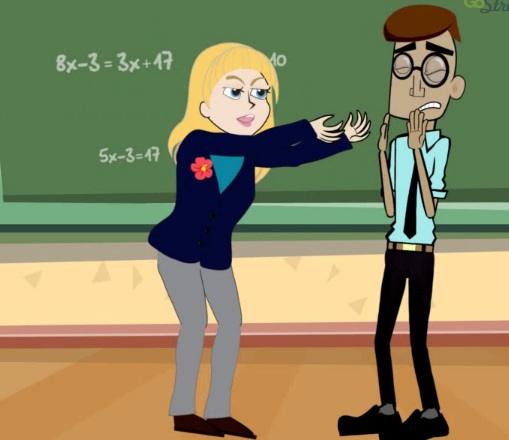
If you’ve been alive for any significant amount of time, it’s likely that someone has hurt you. Some of us have been hurt physically, and we have the scars to prove it; others of us may not show physical signs of pain, but instead possess deeper, emotional wounds. Perhaps a colleague took credit for your great idea at work, a good friend betrayed your confidence, your divorcing parents always find a way to put you in the middle of their arguments, or a great sum of money was stolen from you.
Whatever the offense that was committed against you– whether you believe it to be small, large, or downright egregiously awful, consider for a moment what person makes your stomach churn and your body burn with resentment, bitterness, and vengeful anger. Harboring these feelings inside your body may be what’s keeping you from experiencing ultimate freedom, inner peace, and happiness.
…But it’s not OK what they did!”
Likely you are correct. Hurting you was wrong, and very much not OK. One of the common misconceptions about forgiveness, is that in forgiving someone, you are now saying what they did was excusable or somehow appropriate. This is not true. Forgiving someone does not condone an offense, rather, forgiving is committing to a process that will release you from the negative feelings you carry toward a situation or person so that you can heal and move forward. It is also not uncommon for the forgiveness process to include reminding yourself of your decision to forgive, as feelings of resentment typically re-emerge along the way.
…But what if they hurt me again?”
One of the best traits of the forgiveness process is that it involves you taking back control of the situation. Forgiveness does not mean that you are opening yourself up to be hurt again, but rather the contrary is true; developing healthy boundaries is critical to forgiving. To do this, you must evaluate what you can do to protect yourself in the future. For example, if a co-worker took credit for your great idea, you may want to consider how much information you share with this coworker in the future. If your parents are always trying to involve you in their disagreements, you should prepare to avoid engaging with them during these times by leaving the room, or making yourself otherwise unavailable. If your offender is dangerous, unrepentant, and seems unwilling to change, you may even need to consider what safety measures you can put in place so you can stay away from this person altogether; in extreme cases, this may even include reaching out to the appropriate law enforcement.
…But I can’t just pretend like it never happened!”
Forgiving does not necessarily mean “forgetting”. It is very possible to forgive without denying that the offense occurred. For some farther along in the forgiveness process, they may experience reduced memories of the offense, but that isn’t necessarily the goal. What’s important is that you are liberated from the negative feelings associated with the person or event, and that you begin learning to cope. To help with this, you’ll need to find an outlet for your feelings, as keeping them inside will likely only perpetuate your pain. This may look like journaling, finding an artistic outlet (painting, music, etc.), or connecting with a trustworthy person who will validate your feelings without fueling your resentment. For some, this may also look like reaching out to a counselor or pastor. “Forgiveness does not change the past, but it does enlarge the future.” –Paul Boese
…But I’m at fault too.”
Note: this is not always the case; however, there are circumstances where we may have played a role in the offending event. Sometimes our feelings of self-unforgiveness get intermingled with our ability to forgive the offender, and our resistance to forgiveness may even be because of our refusal to acknowledge our own wrongdoings and shortcomings. Have courage to consider your part in the interaction, and make amends if that is the appropriate next step.
For a moment, imagine yourself free of the anger, resentment, and bitterness your unforgiveness generates inside of you. Consider what would be different in your life if you no longer harbored these negative feelings in your body. Would you feel more peace, more freedom? Think of what you could you do, what could you accomplish, and how much more energy would you have if you were able to just let go?
Best wishes to you on this journey, it’s worth it.
“Forgiving someone does not condone an offense.” I think that’s hard to remember when it comes to forgiveness. Often it seems like a form of punishment to remain angry with someone who has hurt you, but the pain never really releases itself when you hold onto anger.
I read a great book called Mistakes Were Made But Not By Me and in it the author talks about breaking the cycle of retaliation in ongoing conflicts. She used the example of Israel and Palestine. The only way to break the cycle of violence is for each side to acknowledge that both sides are to blame. In a conflict, both parties tend to minimize their own fault and maximize the other side’s fault. It’s important to be honest and balanced when assessing a situation in order to seek a resolution.
Admitting your own mistakes will help you to forgive. Sometimes as you see what your faults are you will come to understand other people and the things that they have done. But, as the article says, forgiving does not mean that you let yourself get hurt again just because you knew the reason why they did what they did to hurt you. The understanding that you need to have is the understanding to know when you should start putting up the boundaries and when it is okay to keep them down so as to nurture a friendship or relationship.